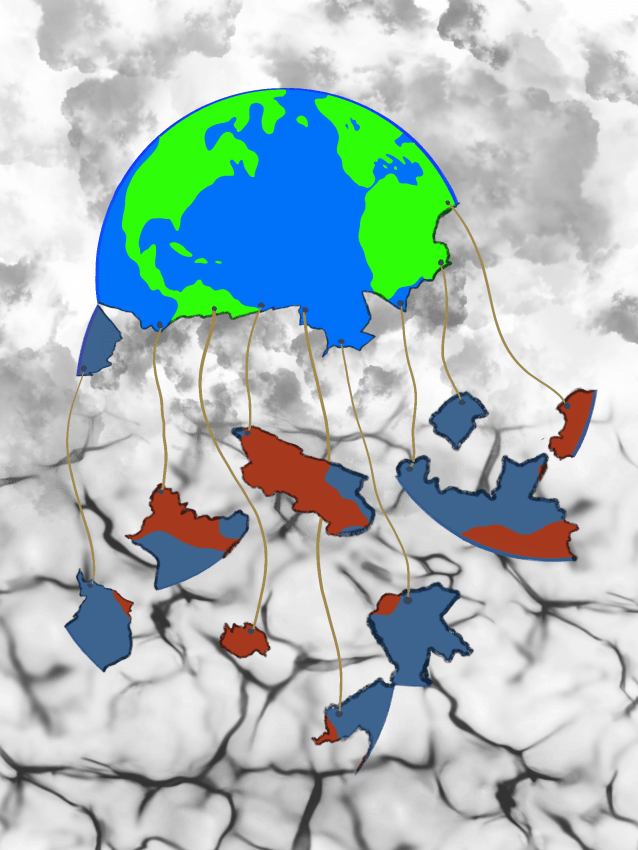So far, each day of 2020 has brought us surreal news and impactful world events. If the momentum keeps up, it’s looking like this year will bring about some historic incidents. In any case, it will likely be a memorable year.

Australia is burning
During the dying days of 2019 and the fresh hours of the new year, images of a fire-ravaged continent started to trickle across the social media. The sky was blood red and hazy, and hundreds of people were shown stranded on a beach waiting for the bushfires to catch up with them.
Emerging from this chaos was a man in ski goggles and bandana, holding a cigarette in his hand while filming himself from a boat in the middle of a bay. It was like a scene from a dystopian film. An image of a young blond child sitting in a boat with a mask over his face was circulating shortly after.
The New York Times published a story that included a photograph of a kangaroo hopping through a neighbourhood on fire — the skeleton of a flaming house behind his silhouette with a lonely mailbox in foreground.
In the first few days of January, the animal death toll has reached a staggering 500 million. Nearly half a billion animals are thought to have died in the inferno. To illustrate this point, a gruesome image of a joey began to circulate. The baby kangaroo is seen clinging to a barbed wire fence, incinerated by the fire it could not escape.
Iran–US relations
It was reported that on Jan. 2, only days into the newly christened decade, the United States had bombed Baghdad airport, targeting and killing General Qasem Soleimani. Tensions were elevated after the attack, leading to Iran’s retaliation on US army bases in Iraq.
Canada and the international community were caught in the crossfire shortly after, with the eventual admission of Ukraine International Airlines Flight 752 being accidentally shot down over Iran airspace, the same evening as the missiles were launched.
Was this all started as a way to shift the spotlight from the following day’s impeachment hearings?
Mystery illness in China
In the first days of the year, reports began to emerge from Wuhan, China, that dozens of people had been hospitalized with pneumonia of unknown origin. All patients had visited a fish market located in the land-locked city. Like the opening scene of the movie Contagion, people began to worry that this could be the beginning days of a new pandemic.
International fears of a SARS-like illness started to circulate among anxious speculation. The SARS outbreak of 2003 began in China and traveled across the globe — heavily affecting Asia and making its way to Canada. It was the first instance of a never before seen virus that was transmitted from bats to civet cats and then finally to humans in an open market.
SARS has been ruled out in this case, but the mysterious illness is thought to be another new virus from the same family. There has been confirmed reports of human to human transmission in families and news of the illness spreading to Japan, Thailand and the United States. Our understanding of the virus and illness is limited at this time. With the speed of how these events are unfolding, this story may have radically changed by time of publication.
Fillipino volcano
The rumbling of the Taal volcano began a few weeks ago, as it began its eruption in the Philippines. Approximately 500,000 residents were asked to evacuate the immediate area around the mountain. Watchful eyes are trained to the volcano, waiting for more activity.
It’s been speculated that a star in the constellation of Orion may be dying. Betelguese is a red supergiant that has been fading in the recent months, gaining the attention of astronomers.
A recent burst of gravitational waves close to the star had the scientific community buzzing. These waves are usually connected to an event, but the star still remains intact.
If Betelgeuse was to explode — or go supernova — it would be as bright as the moon and visible during the day. Orion itself would look quite a bit different in the night sky.
It’s likely that this won’t happen in our lifetime, but this new and strange activity in our galaxy is drawing all kinds of buzz.
Hot oceans, frozen prairie
Our oceans reached record temperatures in 2019 — a sobering statement in a paper that was released in the new year. The study of our oceans is an illustration of our climate’s growing extremes.
Meanwhile, the second full week of January brought with it a massive snow storm that blanketed unprepared Vancouverites and deposited an other wordly cold to Saskatchewan. With a windchill reaching -52 Celsius on the morning of Jan. 15, the Saskatoon air felt a mere 9 degrees warmer than the average day on Mars.
On Jan. 15, Russia announced the resignation of government officials which follows on the heels of a constitutional change enacted by President Valdimir Putin. It seems that Putin is at it again — “strengthening” democracy by changing the constitution to stay in power for life.
Perhaps once the year has stretched on we will have 20/20 hindsight into these rapid fire events of the last few weeks. Until then, we can only watch it all unfold with a critical eye.
—
Erin Matthews/ Opinions Editor
Graphic: Shawna Langer/ Graphics Editor
Leave a Reply